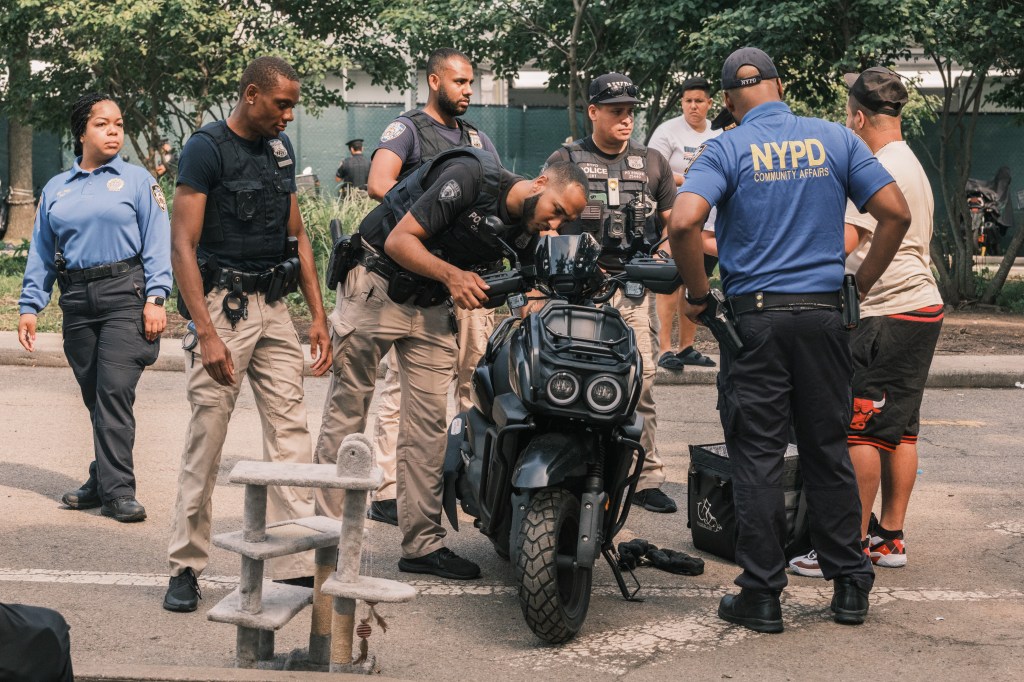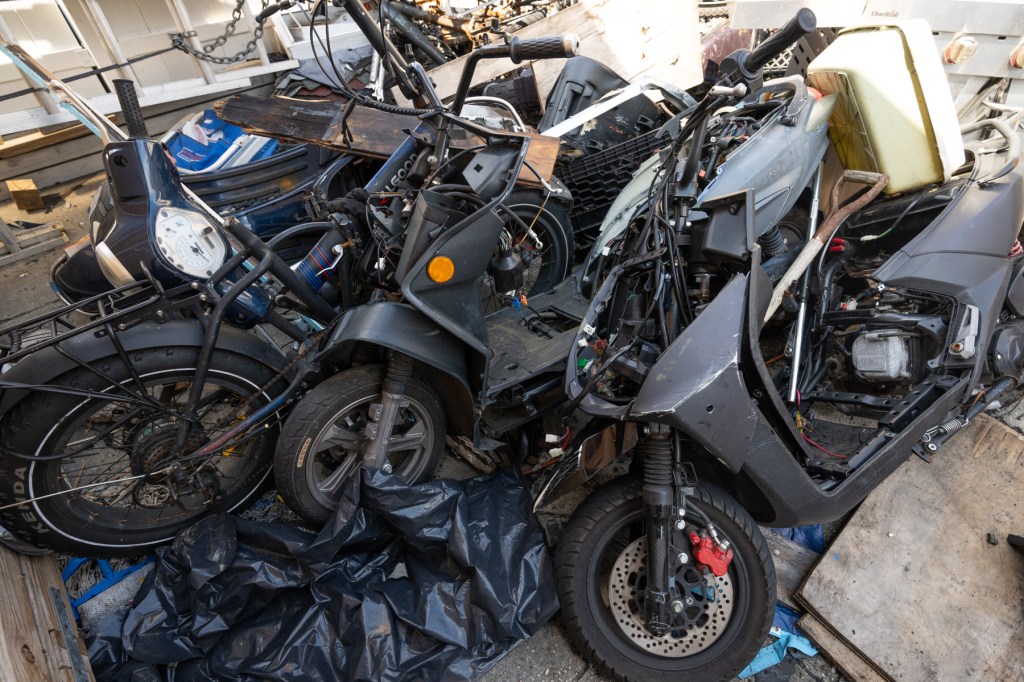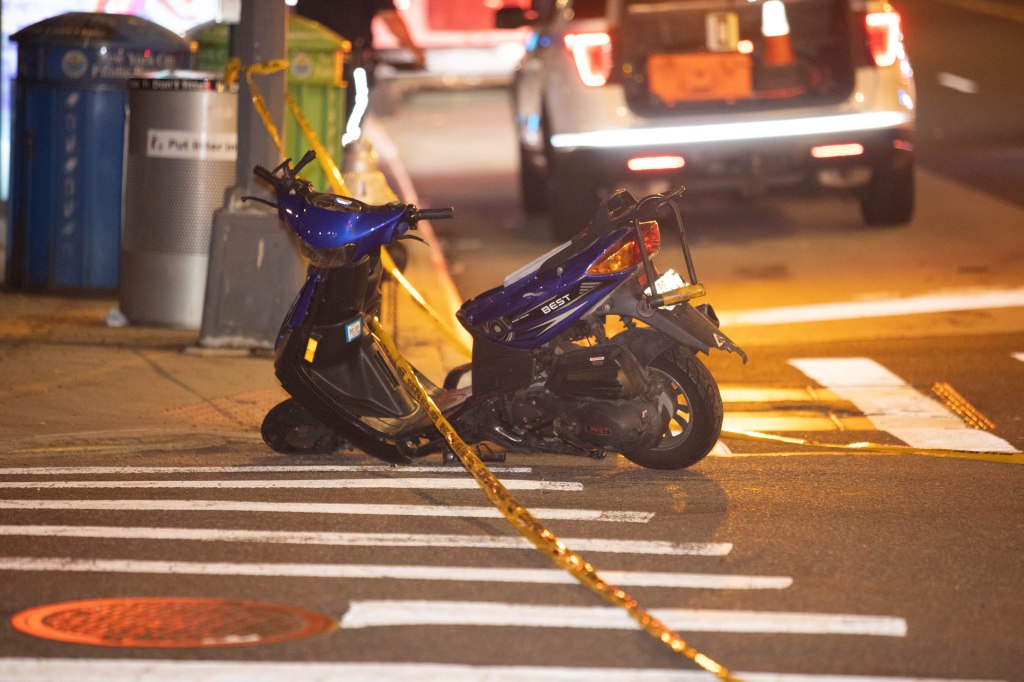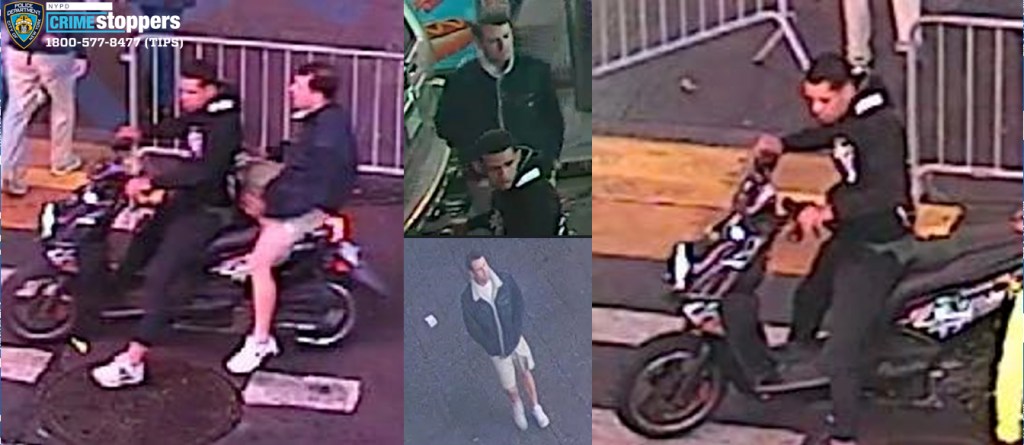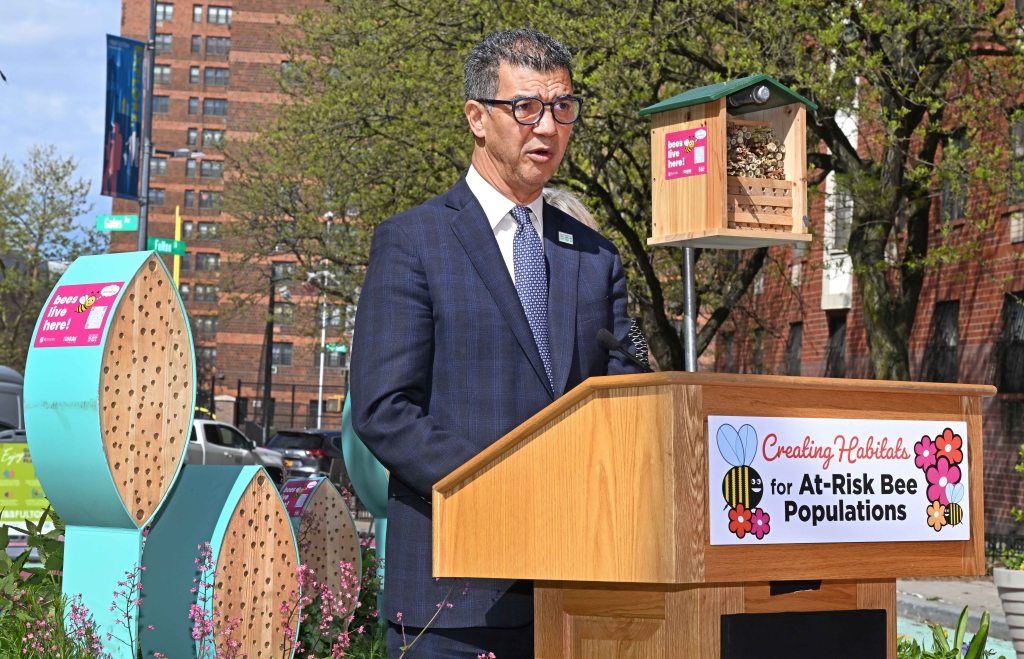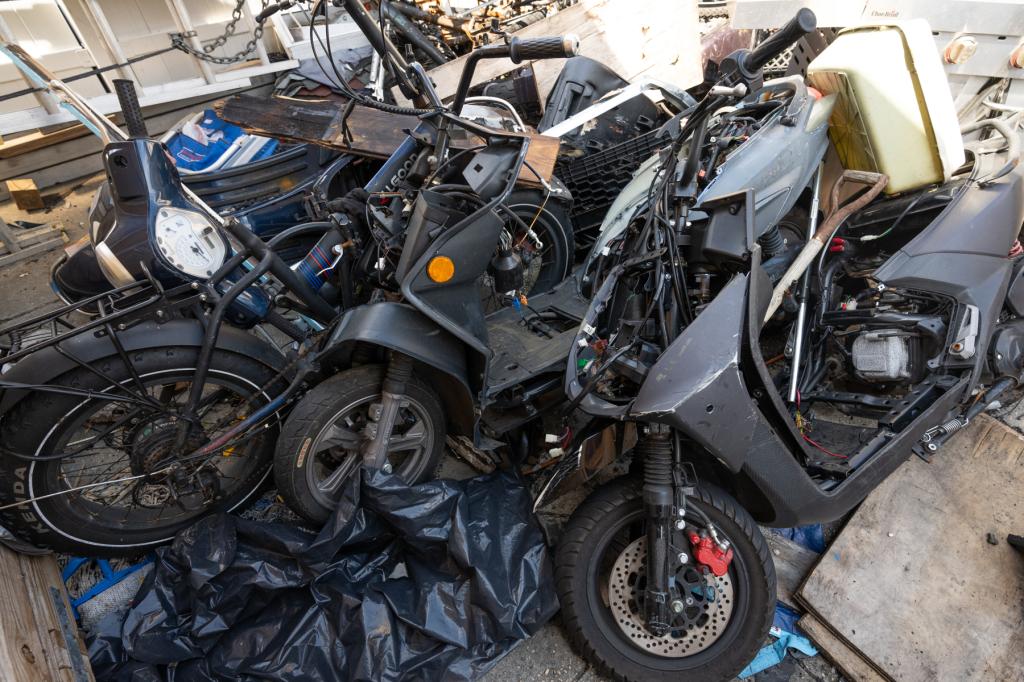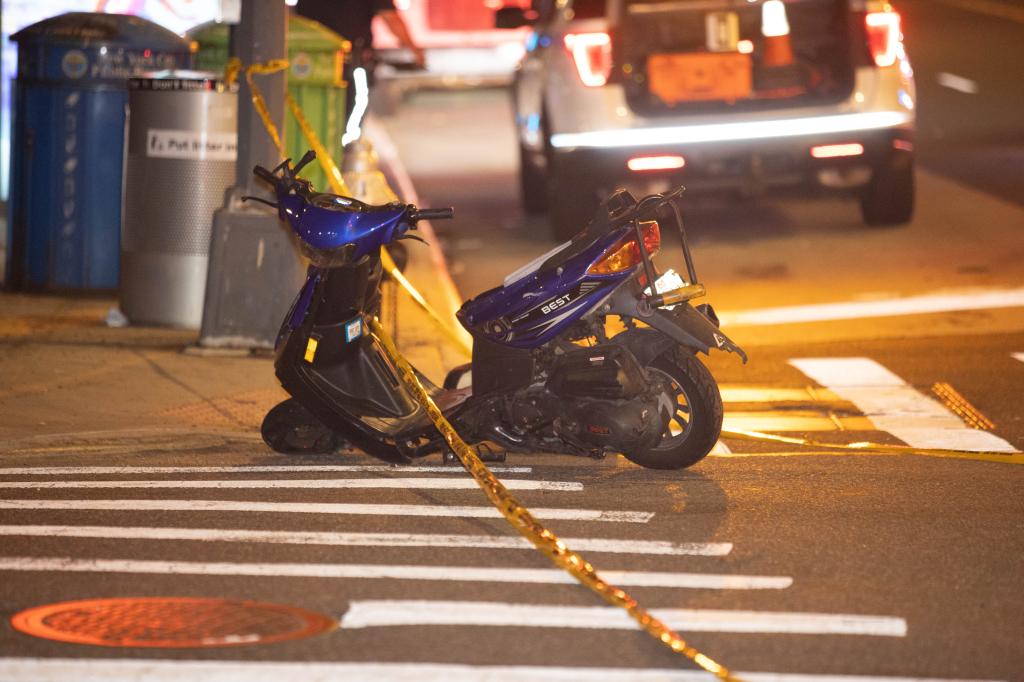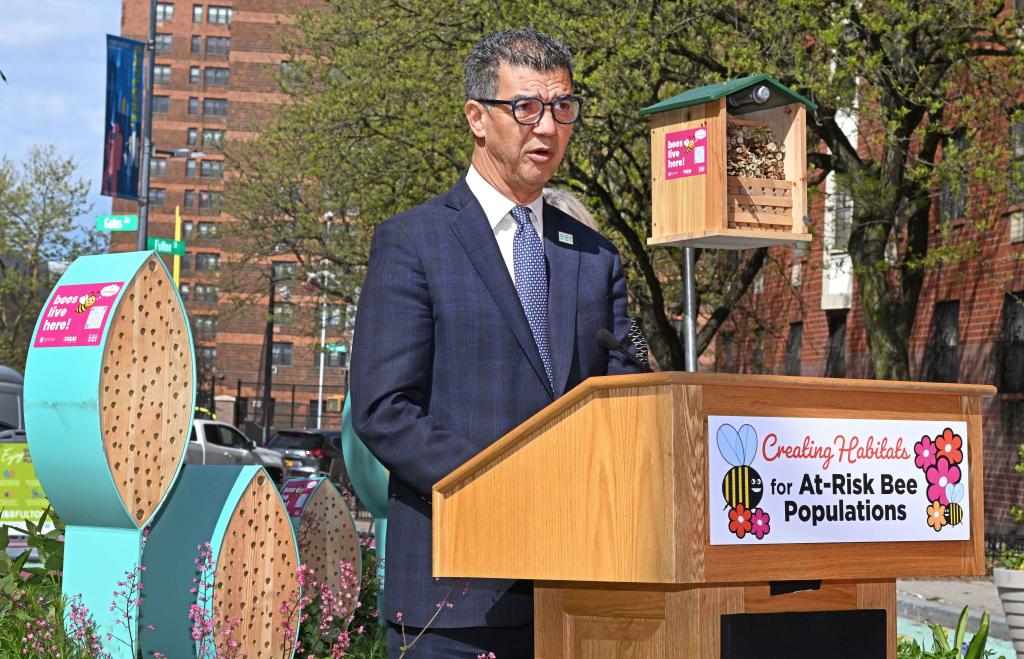NYC e-bikes, scooters may soon need license plates, registration after 46 deadly crashes in 5 years
This bill has a ticket to ride.
The City Council is mulling a law that would require license plates and registration for electric bikes and scooters — after 47 people were killed in e-bike crashes over the last five years.
“The scourge of e-bikes in our streets, on our sidewalks, and even inside our buildings continues to wreak chaos, injure and maim people, and, tragically, take lives,” Council member Bob Holden (D-Queens) said Wednesday at the first public hearing on the bill.
“We need accountability for the victims of e-bike incidents — and we need it now,” said Holden, who introduced the bill in March. “This legislation is long overdue and will provide a necessary layer of oversight and responsibility for these devices.”
The bill – named Priscilla’s Law after 69-year-old Head Start worker Priscilla Loke, who was killed when a Citi Bike plowed into her in Chinatown in September 2023 — would mandate a registration with the state Department of Motor Vehicles and an ID number on a visible plate for every bicycle and scooter with electric assist.
The legislation would affect Citi Bikes and electric scooters used by food delivery drivers.
“This bill also holds companies accountable: platforms like Uber Eats and DoorDash profit from the rise of E mobility devices, they have a responsibility to educate riders and enforce traffic laws among their users and remove repeat offenders from their platforms,” Holden said.
The council member first introduced a version of the bill in 2022, but that bill never had a hearing. The current version has gained 31co-sponsors across party lines, according to the City Council website.
Supporters of the bill, including those from the NYC Electric Vehicle Safety Alliance – a coalition of 1,200 members, including 98 pedestrian and cyclist victims of “e-vehicle and moped violence” – say Priscilla’s Law will increase accountability in e-bike-related traffic violations, accidents and crimes.
“Living with a traumatic brain injury has become my full-time job,” said NYC EVSA cofounder Pamela Manasse, who was struck by an e-bike rider in 2022. “Every step I take is a fight for balance and energy, but I refuse to give up — and my mission now is to push for safer streets so no one else has to endure this pain.”
Serious injuries among other victims have included traumatic brain injuries, brain bleeds, fractured skulls, broken bones and more, the EVSA said.
A dozen people have died in 2024 alone from crashes involving e-bike and e-scooters, according to city data, and 47 people have died in 46 crashes over the last five years.
Most of the victims are drivers themselves, though roughly nine pedestrians have been fatally hit by the vehicles in the last five years – and crashes are still vastly underreported, according to NYC EVSA member Andrew Fine.
“The first instinct is for people to tend to their injuries — they wake up in the hospital and spend several days, even months in the hospital,” Fine said. “And when they get out, the police would [sometimes] tell them that, ‘sorry, you can only report this within five days,’ or it would be categorized as something like an assault.
“There’s just a really inconsistent understanding of how this works by the NYPD,” he added. “They’re still figuring it out.”
The bill’s supporters also argue licenses would help pinpoint the parties to blame for over 735 e-bike battery fires, which have resulted in 500 injuries and 30 fatalities since 2019, Holden said.
But not everyone believes registration and licenses are an equitable solution to the safety issues.
A rep from the NYC Hospitality Alliance – which represents restaurants and nightlife establishments in the boroughs – argues the bill will “impose yet another administrative and financial burden on small businesses and workers” either from owners being unable to find drivers willing to license e-bikes or owners fronting the fees associated with registration.
It remains unclear how much registration and license fees would cost, compared to estimated registration fees upwards of $150 for car owners.
“The city already mandates that restaurant delivery cyclists wear a distinctive ID number on their upper-body apparel and their bikes must also bear a unique ID number,” alliance director Andrew Rigie told The Post, “so, it’s hard to imagine that by adding a third ID number to a delivery bike the City Council is going to improve street safety.”
Fine counters that the associated fees would be “marginal” – and food delivery app companies must be held accountable for their drivers, a sentiment Department of Transportation Commissioner Ydanis Rodriguez shared at Wednesday’s hearing.
“People who misuse [e-bikes] should be accountable for their actions, including the delivery app companies that encourage faster speed and reckless behavior to increase their profits,” Rodriguez said.
But despite the DOT’s agreement that the “intent of this bill is something this administration supports,” the commissioner argued the administration already has the tools to enforce reckless e-bike drivers.
“A license plate is not necessary for enforcing it,” he said.
Holden said that accountability begins before enforcement – and more oversight on the vehicles will curb reckless driving before it starts.
Holden grilled the DOT on the data regarding how many e-bike riders are not following traffic laws – but the DOT appeared to not have the figures.
“We are in the process of collecting more data,” an assistant commissioner said to laughs from the audience.
“I’m puzzled that DOT doesn’t have numbers right away,” Holden said. “You can figure this out except that you chose not to because of some regulations you feel it’s going to be imposing.
“These devices when unregulated pose risks far beyond collision,” Holden added. “They are literally a matter of life and death.”
